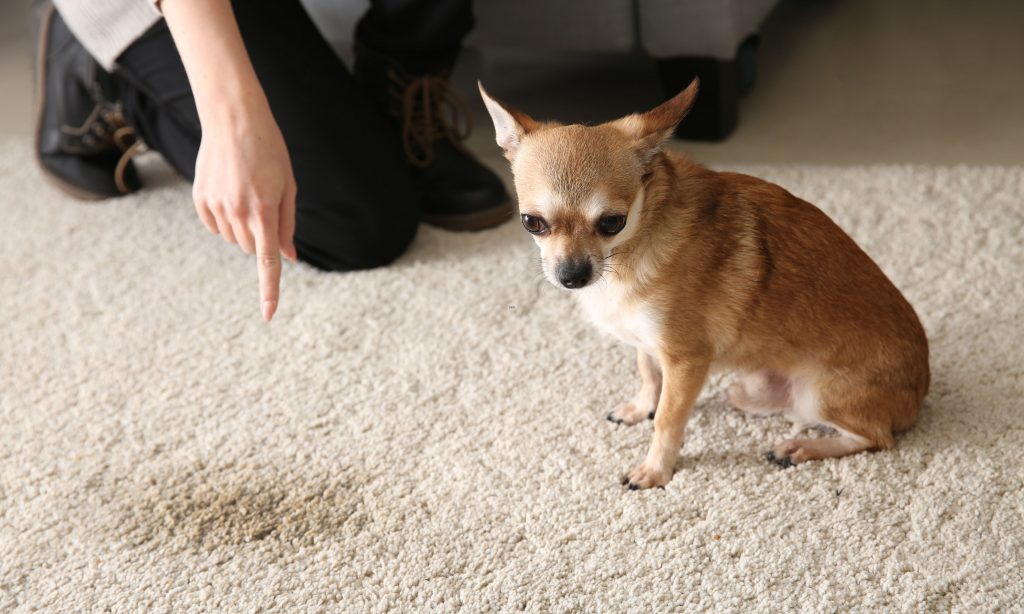The post aims to inform pet parents about the negative effects of scolding a puppy and the importance of using positive reinforcement methods instead. The post aims to educate readers on the long-term consequences of scolding, such as fear, anxiety, and mistrust, and how it can affect the bond between the pet and the owner. The post will also provide alternative techniques, such as positive reinforcement, that pet parents can use to effectively train their puppies and prevent unwanted behavior. The ultimate goal is to persuade readers to adopt a more positive and effective approach to training their puppies and creating a strong bond with their furry companions.

As a pet parent, it can be frustrating to deal with a misbehaving puppy. However, it’s important to remember that scolding a puppy is not an effective or healthy way to discipline them. In this blog post, we will discuss the negative effects of scolding a puppy and the importance of using positive reinforcement methods instead.
When scolding a puppy, they may become fearful and anxious, which can lead to mistrust and a lack of bonding between the pet and the owner. Scolding can also cause confusion in the puppy, as they may not understand what they did wrong or how to correct the behavior. This can lead to more unwanted behavior in the future as the puppy doesn’t understand what is expected from them.
On the other hand, positive reinforcement training is an effective and humane way to train a puppy. By rewarding good behavior and ignoring unwanted behavior, puppies learn what is expected of them and are more likely to repeat the desired behavior. This approach helps to create a positive and enjoyable training experience for both the puppy and the owner.

Here are some alternative techniques for scolding a puppy:
- Redirect the puppy’s attention to appropriate behavior, rather than scolding them.
- Reward the puppy with treats or praise when they engage in the desired behavior.
- Ignore the puppy when they engage in unwanted behavior.
- Consistently supervise the puppy to prevent unwanted behavior.
- It’s important to remember that puppies are still learning and it’s normal for them to make mistakes. As pet parents, it’s our job to guide them and teach them what is expected of them. By using positive reinforcement techniques, we can create a strong bond with our furry companion and prevent the long-term negative consequences of scolding.
Conclusion:
Scolding a puppy is not an effective or healthy way to discipline them. It can cause fear, anxiety, and mistrust, and can affect the bond between the pet and the owner. Positive reinforcement training is an effective and humane way to train a puppy and create a positive and enjoyable training experience for both the puppy and the owner. If you have any questions or concerns about your puppy’s behavior, visit our website and chat with us. We are here to provide you with the tools and resources you need to have a happy and well-trained dog.

Frequently Asked Questions:
Is it ever okay to scold a puppy?
No, it is never okay to scold a puppy. Scolding can cause fear, anxiety, and mistrust, and can affect the bond between the pet and the owner. Positive reinforcement training is an effective and humane way to train a puppy.
Why is scolding a puppy not effective?
Scolding a puppy can cause confusion and fear, and can lead to more unwanted behavior in the future. Puppies may not understand what they did wrong or how to correct the behavior. Positive reinforcement training, on the other hand, helps puppies understand what is expected of them and is more likely to result in desired behavior.
Can scolding a puppy cause long-term damage?
Yes, scolding a puppy can cause long-term damage, such as fear, anxiety, and mistrust, which can affect the bond between the pet and the owner. It can also lead to more unwanted behavior in the future.
What are some alternatives to scolding a puppy?
Alternatives to scolding a puppy include redirecting their attention to an appropriate behavior, rewarding them with treats or praise when they engage in desired behavior, ignoring them when they engage in unwanted behavior, and consistently supervising them to prevent unwanted behavior.
How can I change my approach to training my puppy if I have been scolding them?
It’s never too late to change your approach to training your puppy. Start by learning about positive reinforcement techniques and implement them in your training. Be patient and consistent in your training, and remember that puppies are still learning. Gradually phasing out negative reinforcement techniques like scolding and replacing them with positive ones will help your puppy understand what is expected of them and help you build a stronger bond with them.



